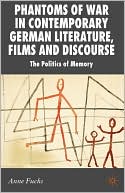Category Books
- Fiction Books & Literature
- Graphic Novels
- Horror
- Mystery & Crime
- Poetry
- Romance Books
- Science Fiction & Fantasy
- Thrillers
- Westerns
- Ages 0-2
- Ages 3-5
- Ages 6-8
- Ages 9-12
- Teens
- Children's Books
- African Americans
- Antiques & Collectibles
- Art, Architecture & Photography
- Bibles & Bible Studies
- Biography
- Business Books
- Christianity
- Computer Books & Technology Books
- Cookbooks, Food & Wine
- Crafts & Hobbies Books
- Education & Teaching
- Engineering
- Entertainment
- Foreign Languages
- Game Books
- Gay & Lesbian
- Health Books, Diet & Fitness Books
- History
- Home & Garden
- Humor Books
- Judaism & Judaica
- Law
- Medical Books
- New Age & Spirituality
- Nonfiction
- Parenting & Family
- Pets
- Philosophy
- Political Books & Current Events Books
- Psychology & Psychotherapy
- Reference
- Religion Books
- Science & Nature
- Self Improvement
- Sex & Relationships
- Social Sciences
- Sports & Adventure
- Study Guides & Test Prep
- Travel
- True Crime
- Weddings
- Women's Studies
Phantoms Of War In Contemporary German Literature, Films And Discourse » (First Edition)

Authors: Anne Fuchs
ISBN-13: 9780230554054, ISBN-10: 0230554059
Format: Hardcover
Publisher: Palgrave Macmillan
Date Published: February 2008
Edition: First Edition
Author Biography: Anne Fuchs
ANNE FUCHS is Professor of Modern German Literature and Culture at University College Dublin, Ireland. She is author of the acclaimed monograph Die Schmerzensspuren der Geschichte: Zur Poetik der Erinnerung in W. G. Sebalds Prosa (2004) and co-editor (with Mary Cosgrove and Georg Grote) of German Memory Contests (2006).
Book Synopsis
Phantoms of War in Contemporary German Literature, Films and Discourse offers an up-to-date and comprehensive analysis of fundamental shifts in German cultural memory. Focusing on the resurgence of family stories in fiction, autobiography and in film, this study challenges the institutional boundaries of Germany's memory culture that have guided and arguably limited German identity debates. Essays on contemporary German literature are complemented by explorations of heritage films and museum discourse. Together these essays put forward a compelling theory of family narratives and a critical evaluation of generational discourse.
Table of Contents
Acknowledgements x
Introduction: Family Narratives Between Vernacular and Official Memory 1
The meaning of being German 1
History as family narrative 4
Generation and genealogy 9
Germans as victims of war 11
A reader's guide to this book 16
Generational Conflict and Masculinity in Vaterliteratur by Christoph Meckel, Uwe Timm, Dagmar Leupold and Ulla Hahn 20
Vaterliteratur and the language of silence 20
Between rupture and continuity: Generational discourse 21
Of damaged fathers and ruined families: Christoph Meckel and Uwe Timm 24
Between sentimental empathy and historical analysis: Fathers as soldiers in Ulla Hahn and Dagmar Leupold 33
Conclusion 43
Family Narratives and Postmemory: Gunter Grass's Im Krebsgang, Tanja Duckers's Himmelskorper and Marcel Beyer's Spione 45
The new German family narrative 45
Postmemory and trauma theory 47
Gunter Grass's Im Krebsgang and Tanja Duckers's Himmelskorper: From historical self-reflexivity to postmemorial confidence 52
Undoing disenchantment: Necromancy in Marcel Beyer's Spione 62
Conclusion 74
Heimat and Territory in Thomas Medicus's In den Augenmeines Grossvaters and Stephan Wackwitz's Ein unsichtbares Land 77
The geography of memory 77
Landscape as screen memory: Medicus's In den Augen meines Grossvaters 80
Heimat discourse and colonialism in Stephan Wackwitz's Ein unsichtbares Land 91
Conclusion 106
Narrating Resistance to the Third Reich: Museum Discourse, Autobiography, Fiction and Film 109
The symbolism of resistance 109
Resistance narratives and the construction of a moral legacy in East and West Germany 110
The memorial site for German resistance: Gedenkstatte Deutscher Widerstand 116
The impairment of tradition in Wibke Bruhns's Meines Vaters Land and Christian Friedrich Delius's Mein Jahr als Morder 122
Resistance in France in German narratives: Sibylle Mulot's Nachbarn and Michael Wallner's April in Paris 136
Resistance as family romance: Jo Baier's Stauffenberg. Der 20. Juli 1944 143
Resistance in extremis: Marc Rothemund's Sophie Scholl. Die letzten Tage 147
Historical narrative or postmemorial drama? Margarethe von Trotta's Rosenstrasse 152
Conclusion 157
Hitler Youth Autobiographies: Gunter Grass's Beim Hauten der Zwiebel and Joachim Fest's Ich nicht 161
Autobiography and identity discourses 161
The Hitler Youth generation in post-war Germany 163
Grass's confession and the public debate 168
Constructing autobiographical truthfulness: Grass's Beim Hauten der Zwiebel 172
Fest, Grass and the politics of memory in unified Germany 182
Reclaiming Prussianism, catholicism and the bourgeois education: Joachim Fest's Ich Nicht 186
From autobiography to hagiography 190
Conclusion 197
Epilogue: Germany as a Threshold Culture 200
Notes 205
Works Cited 232
Index 248
Subjects
 Literary Criticism
Literary Criticism  German Literature
German LiteratureHistory
 European History
European History  German History
German HistoryHistory
 World History
World History  Social & Cultural History
Social & Cultural HistoryNonfiction
 History
History  European History
European HistoryNonfiction
 History
History  World History
World History
